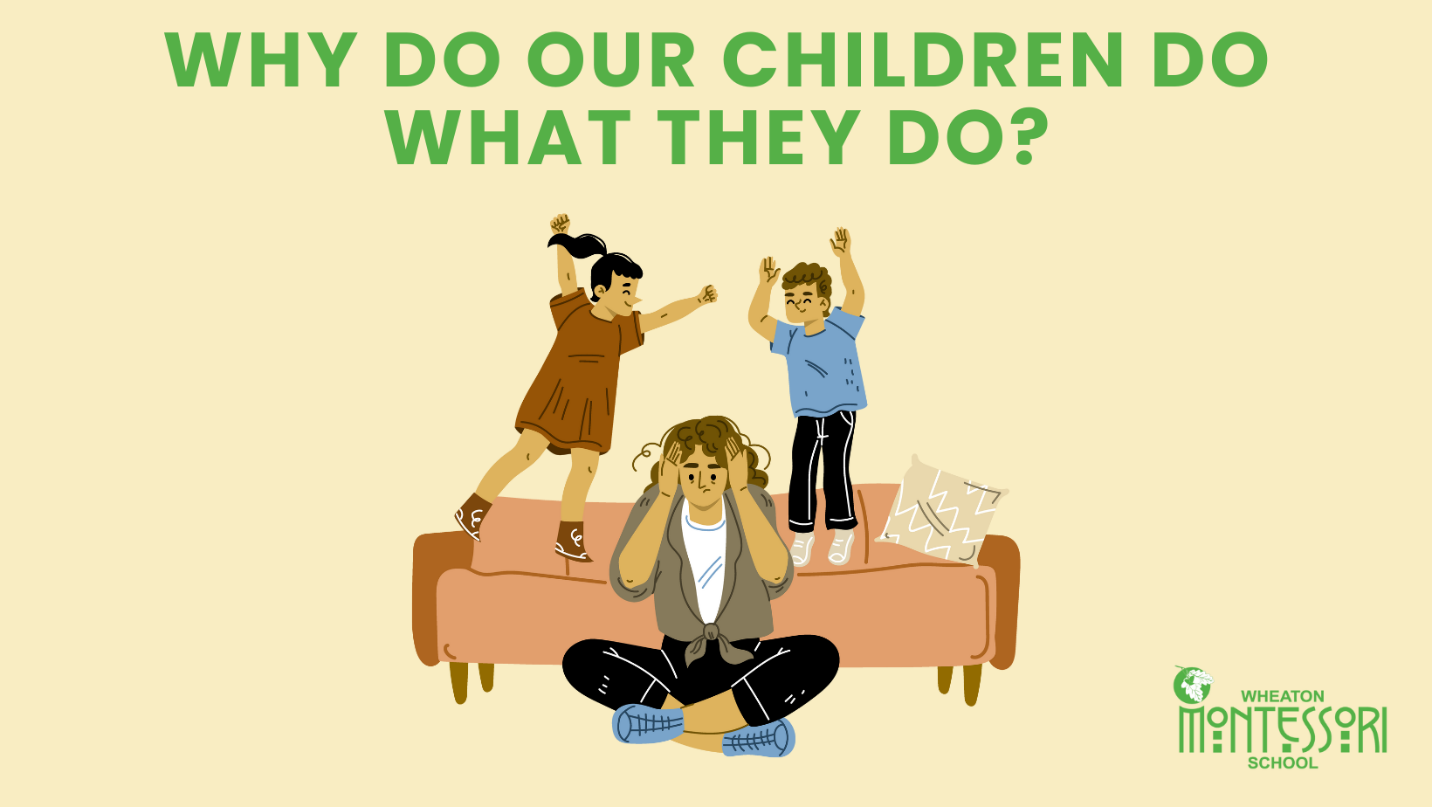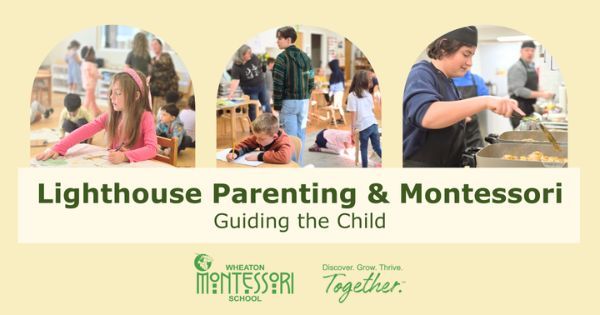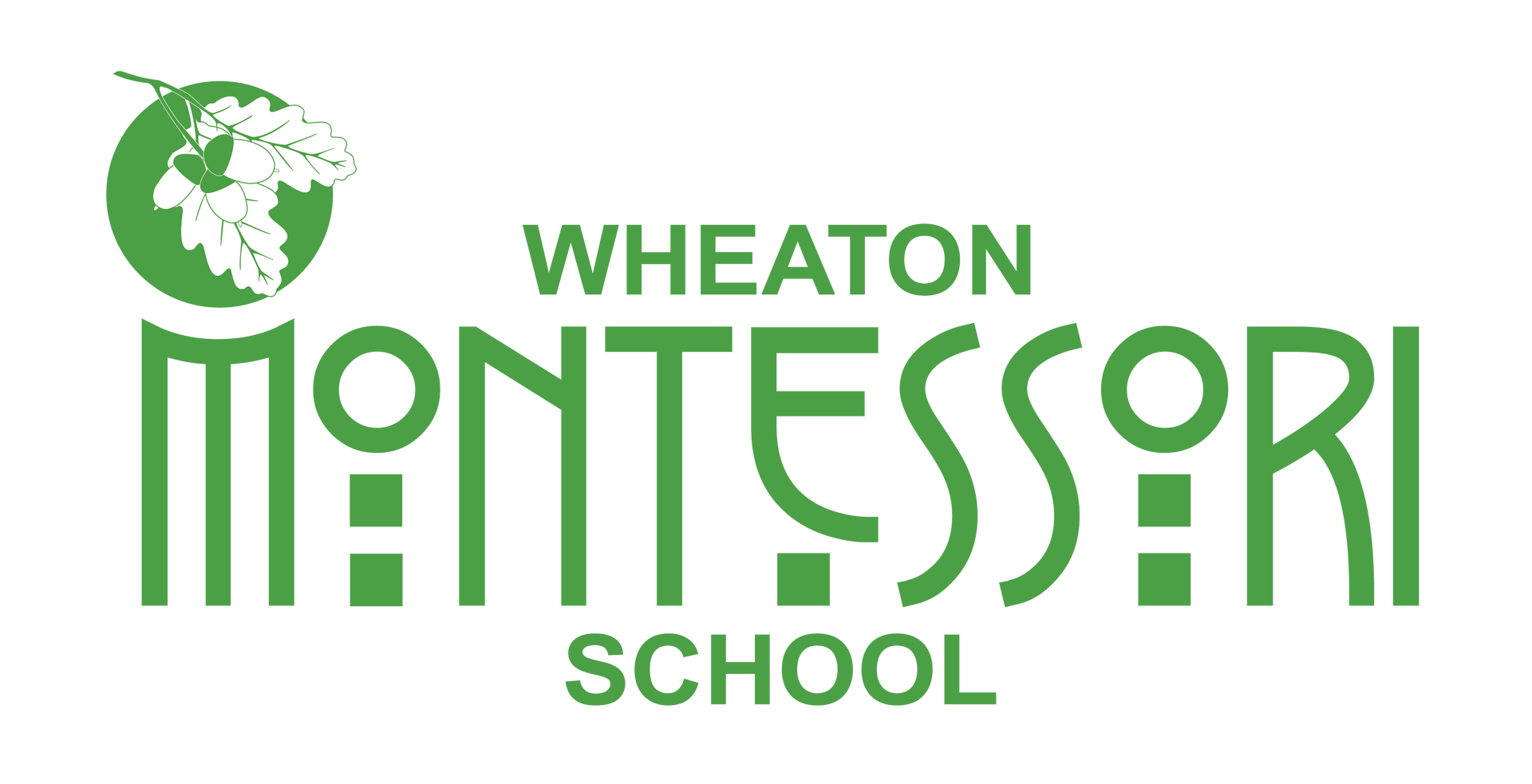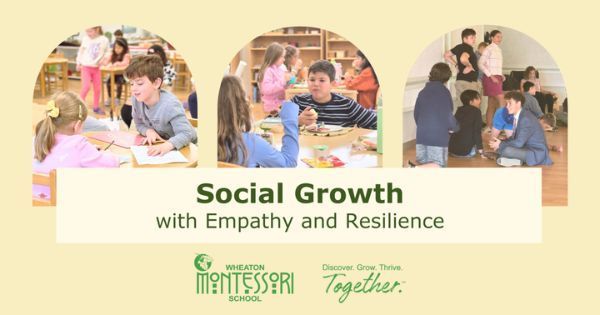
The scene may feel familiar, jumping on furniture or sitting down for a family dinner where our youngest starts tapping their spoon against a bowl, fascinated by the sound it makes. Our middle child begins asking a series of questions: “What does it mean to get an education? Why do people go to school? Why was Malala shot? Why are there wars?” Our oldest starts getting frustrated with the other two, wanting them to follow directions and have their dinner places in order.
In that chaotic moment before dinner, it’s easy for exasperation to take over. As adults, we might sometimes wonder what in the world propels our children. Really, what are they thinking when they try making holes by poking the table with a fork?
Innate Human Tendencies
We are born with innate human characteristics. We are hard-wired to explore, work, connect, and communicate. We crave order in our surroundings. We imagine possibilities. We create. We need to orient to what is around us, move our bodies, and wonder about the how and why. These human tendencies are unconscious, universal drives and they are at play our whole lives.
The newborn has familiar landmarks when hearing their mother’s heartbeat. When allowed to be on the floor, the infant rotates their body and moves in amazing ways. This drive to move propels babies into scooting, crawling, and eventually coming to that upright position that frees them to use their hands to explore the environment.
We recognize these needs in our infants, yet that vital life force is powerful for older children, too. When our children are exploring the noise of the spoon against the bowl, they aren’t trying to aggravate us. They are just exploring cause and effect and delighting in the auditory result. When your teenager wants to stay in their bedrooms, they aren’t rejecting family, but fulfilling a desire for mental solitude.
Awareness of Internal Drives
Knowing that children are compelled by basic human tendencies, let’s explore these tendencies and help our children become their best selves.
Your home and Wheaton Montessori School provide children with a sense of order. Knowing where one’s things go and how to help contribute to a task provides children with a sense of security and belonging. Just think about the feeling of uncertainty you can get when you visit someone’s home and don’t know whether to take off your shoes, where to hang your coat, or even how to be useful. By making sure our children feel welcome and purposeful and providing consistent routines, we help children develop an orientation to the world that they carry into all future settings.
You and your teachers prepare children for routines and offer accessible spaces that allow them to participate in the functioning of the day. They can help set the table, feed the cats, gather the laundry, prepare their lunches, and so much more. By participating in a meaningful way, they feel significant and ultimately more confident.
Our children’s constant questioning merely comes from a need for intellectual exploration. These big questions speak to their newfound mental ability to ponder expansive ideas about the world. As our children venture into new territory, either physically or intellectually, they benefit from opportunities to test their ideas and make connections to what they already know.
As social beings, we have to learn ways to collaborate effectively. The earliest humans had to cooperate to survive. An older child trying to force cooperation may just need some light support to find a way to communicate and connect with younger peers or siblings, rather than lapsing into exasperation.
Supporting Development
Human tendencies are unconscious, universal drives that support our adaptation to our particular time and place. We are hard-wired to adapt to our environment! The human tendencies – to orient, explore, order, abstract, imagine, calculate, work, be exact, perfect oneself, and communicate and associate with others – help aid this adaptation. They provide the internal drive to become our best selves.
Have you heard the phrase “Follow the child”? At Wheaton Montessori School, our classrooms and curriculum are designed with these human tendencies in mind, with particular attention to how these innate drives manifest themselves at different stages of development. Constructing curricula and classrooms around students' developmental needs and stages is exactly what Dr. Maria Montessori purposely designed and the benefits of these approaches supported.
Thanks to our Montessori training and commitment, we recognize, honor, and support innate characteristics in children so we aren’t obstructing their important development. Our children reach amazing heights with Montessori support. Please contact us to observe classrooms or tour the campus.


